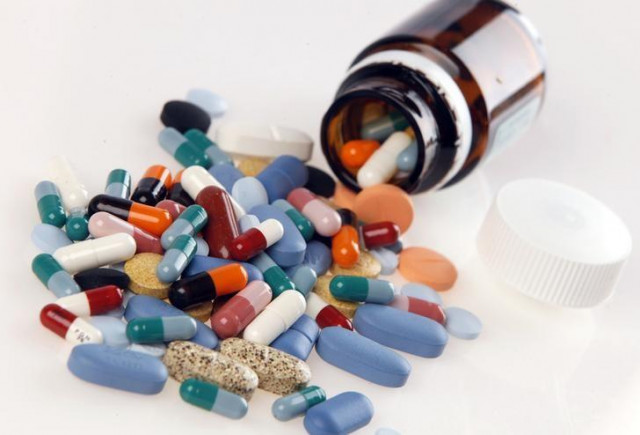Drug shortage to haunt many next year
Experts believe difficulties in issuing LC led to a drug shortage in 2023, likely to reoccur in 2024

It is said “one who has good heath, has everything.” However, for much of Lahore’s infirm populace facing an impending shortage of essential medicines, a literal application of the popular adage means that many will have nothing meaningful to hold onto in the coming year.
Looking retrospectively, where the peaking dollar rate and hindrances in import protocols had offset the healthy functioning of several industries in 2023, the strongest effects were felt in the pharmaceutical sector, where difficulty in importing the raw chemicals for manufacturing drugs had instigated an unprecedented shortage of life-saving medicines for a variety of chronic and acute illnesses, forcing many patients to either reduce the duration of their treatments or forego them altogether.
For instance, Shoaib Butt and Owais Chaudhary, both were unable to receive the medicinal treatments for their diseases since either the required drug was unavailable or in the rare case of its availability, was being sold at exorbitant prices by black marketeers. “During the whole of 2023, every single time I would step out to purchase my medicines, I would be surprised at how expensive they were becoming with each passing day,” complained Chaudhary.
Read ECC questions DRAP over pricing policies
Despite the State Bank of Pakistan claiming that no restrictions have been imposed on the imports of life-saving medical machinery and medicinal compounds, experts in the pharmaceutical sector believe that difficulties in issuing Letters of Credit (LC) led to the drug shortage in 2023, which is likely to continue into 2024.
According to Mian Farooq, a tycoon associated with the pharmaceutical sector, fundamental raw materials for the production of over 150 different drugs could not be imported due to the delay in approval of applications for the Letter of Credit (LC), leading to a widespread shortage. “Due to this shortage of life-saving medicines, many patients have discontinued their treatment plans or have restricted them to one or two days only. Furthermore, this shortage has also created room for black markeeters to capitalize on patients helplessness and sell the highly demanded drugs at prices which are almost 500 percent higher than the usual market price,” revealed Farooq, who further alleged that the problem would only worsen until or unless the government decides to crackdown against the illegal traders.
According to sources of the Express Tribune, black marketeers are selling short in supply drugs for a variety of physical and mental illnesses including epilepsy, diabetes mellitus, hypertension, chronic inflammation, cardiothoracic disease, respiratory disease, liver dysfunction, ear and eye infections, seasonal allergies, bipolar disorder, and depression at unreasonably high prices to hapless patients, who have no choice but to pay whatever price is demanded.
Read Patients denied life-saving treatments
On the other hand, pharmaceutical manufacturers, like Nadeem Haider, are of the opinion that ever since the raw materials of medicines have become expensive it has become very difficult to manufacture them at the old prices. “As a result importers are importing medicines cautiously. If 500 units of Insulin are ordered only 100 will be delivered. As a result, such life-saving drugs are short in the market.
Moreover, many companies have also established monopolies in the pharmaceutical industry, which allows them to control the prices of essential drugs and increase them in order to maximize their own profit,” claimed Haider, who further revealed that amidst the unstable economic conditions in the country, even hospitals were not receiving the required stock of medicines.
Speaking to the Express Tribune on the matter, the Provincial Minister for Primary and Secondary Healthcare, Dr Jamal Nasir said, “We will try our best to take strict action against the sale of drugs in the black market. In this regard discussions are ongoing between the pharmaceutical companies and the federal government.”
Published in The Express Tribune, December 28th, 2023.



















COMMENTS
Comments are moderated and generally will be posted if they are on-topic and not abusive.
For more information, please see our Comments FAQ